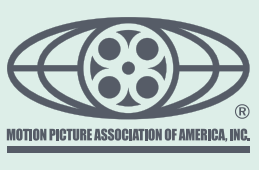 As Europe conducts a reassessment of copyright law and its ability to keep pace with technology, the United States is doing likewise.
As Europe conducts a reassessment of copyright law and its ability to keep pace with technology, the United States is doing likewise.
In a speech during the World Intellectual Property Day celebrations at the Library of Congress in April 2013, Chairman Bob Goodlatte announced that the House Judiciary Committee would carry out a comprehensive review of United States copyright law.
“I am announcing today that the House Judiciary Committee will hold a comprehensive series of hearings on U.S. copyright law in the months ahead. The goal of these hearings will be to determine whether the laws are still working in the digital age,” Goodlatte said.
As of mid-October 2015 the Committee had held 20 hearings on various topics, from the scope of copyright protection and Fair Use, the preservation and reuse of copyright works, to the first sale doctrine and music licensing.
With additional meetings with hearing witnesses now underway, the House Judiciary Committee is conducting a “listening tour” to gather input from those involved in the creative process. After stopping off in Nashville, Goodlatte and other members of the Committee appeared at Santa Clara University in Northern California yesterday. Today they’re hosting a roundtable discussion at the University of California, Los Angeles.
In addition to Google’s senior copyright counsel Fred von Lohmann, Dean Marks, the MPAA’s chief of global content protection, is also expected to attend. Neil Fried, SVP, Government and Regulatory Affairs, says that while the MPAA welcomes the discussion to Hollywood, changes to copyright law aren’t high on its agenda.
“Although not perfect, the Copyright Act is fulfilling its mission of promoting the production and dissemination of creative works,” Fried says.
“In 2014 alone, viewers used lawful online services to access 66.6 billion television episodes and 7.1 billion movies. We expect these TV and film numbers to reach 101.6 billion and 11.7 billion by 2019. Clearly the market and copyright law are working.”
But while the MPAA says it’s broadly satisfied with the law, it insists that more must be done to combat piracy. Cooperation with other stakeholders will provide the solutions the industry is looking for, the movie group says.
“The Internet’s decentralized nature allows anyone around the world to contribute to its content and architecture, but that also means no single entity can solve problems that arise, like piracy,” Fried says.
“That is why we are currently focusing our attention on forging cross-industry, voluntary initiatives to ensure a safe and innovative digital environment, rather than seeking a legislative rewrite of copyright policy.”
And to date there have indeed been significant developments on this front.
In addition to attempting to choke the finances of pirate sites by forging closer relationships with processors including PayPal, MasterCard and Visa, there have been national and international campaigns to ensure that big brands avoid placing their ads on pirate sites. Users have been targeted too.
“The motion picture and recording industries have also partnered with the five largest ISPs to create the Copyright Alert System, a progressive system of alerts that is used to make consumers aware of possible infringing activity that has occurred over peer-to-peer networks using their Internet accounts, provide them with information on how to prevent such activity from happening again, and also inform them of the wide range of legal online alternatives,” Fried adds.
But while some ISPs, processors and advertising networks may be on board, bigger challenges lie ahead for the development of voluntary agreements. For example, the MPAA is desperate to find a simple way to stop pirate sites from easily registering and then using domain names for infringing purposes.
“Even though the terms of service for domain name registrars and registries almost uniformly prohibit the use of domain names for illicit activities, these provisions are rarely enforced,” Fried explains.
To date progress on this front has been slow and in some cases responses have been somewhat hostile.
And of course, the MPAA will be pleased that Fred von Lohmann is expected at today’s roundtable. The Hollywood group is still not happy with how easy it is for Internet users to find infringing content using Google search. Google previously stated that people tend to find infringing content because they’re specifically looking for it, but the MPAA sees things somewhat differently.
“Nearly 60 percent of the queries that led to stolen content contained only generic or title-specific keywords, indicating consumers were not specifically seeking pirated material,” Fried says.
With the heat of the Project Goliath debacle still simmering beneath the surface, the MPAA’s current tone is certainly measured. Only time will tell whether its claimed satisfaction with copyright law will continue longer term should Google and others decide not to play ball.





